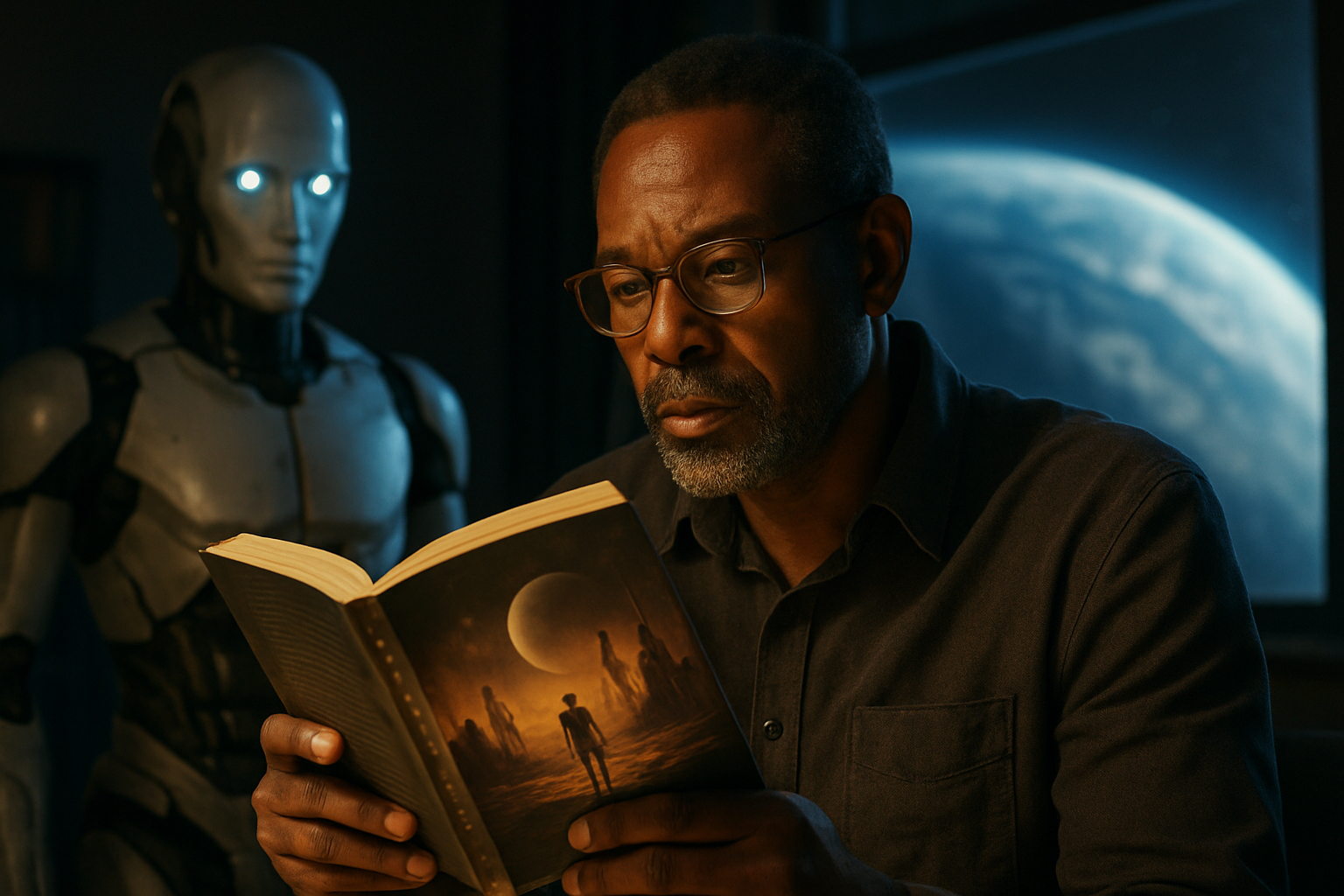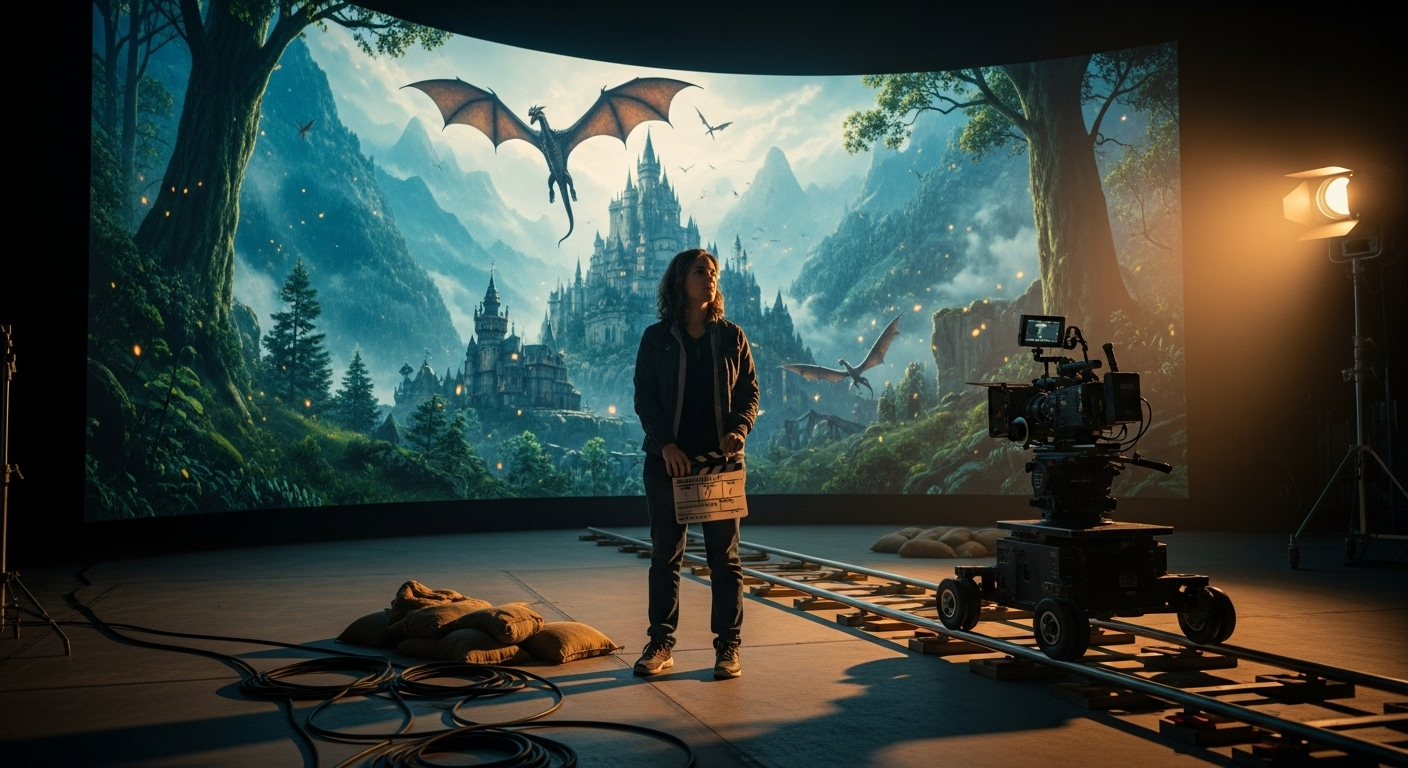Dystopian Visions: How Science Fiction Shapes Our Reality
Science Fiction, or Sci-Fi, is a genre that has shaped and reflected our societal fears, hopes, and aspirations for over centuries. Its origins can be traced back to the 19th century, with celebrated authors like Jules Verne and H.G. Wells pioneering the genre. They used the canvas of the future to discuss pressing societal issues like industrialization, imperialism, and the human impact on the environment.

Visions of the Future: The Golden Age and Beyond
The genre exploded into mainstream consciousness in the mid-20th century, in what is often referred to as the ‘Golden Age of Science Fiction.’ Legendary authors like Isaac Asimov, Ray Bradbury, and Arthur C. Clarke provided vivid, dystopian visions of the future that echoed the anxieties of the post-war world.
Sci-Fi continued to evolve and adapt to societal changes, maintaining its relevance and appeal to successive generations. The genre, in recent years, has turned its gaze towards the implications of rapid technological advancements and the rise of artificial intelligence.
Sci-Fi Today: A Reflection of Our Times
In the current era, Sci-Fi is as relevant as ever. The genre has seen a resurgence in popularity, with a slew of movies, series, and novels addressing issues like climate change, surveillance, and corporate power.
A significant development is the increasing diversity in the genre, with more women, people of color, and LGBTQ+ authors contributing their unique perspectives. This has led to a richer tapestry of stories that reflect a broader spectrum of human experiences and concerns.
The Impact: Sci-Fi and Society
Sci-Fi’s impact on society is profound and far-reaching. Its dystopian visions have sparked discussions about technological ethics, environmental responsibility, and social justice. The genre has influenced scientific research and technological development, with many scientists citing Sci-Fi as an inspiration for their work.
Furthermore, the genre has shaped popular culture, with iconic books, movies, and series becoming part of our collective consciousness.
The Significance: More Than Just Entertainment
While Sci-Fi is often dismissed as mere escapism, it is an essential tool for societal reflection and critique. The genre’s dystopian visions serve as a cautionary tale, warning us of the potential pitfalls of unchecked technological and societal progress.
In conclusion, Sci-Fi, with its dystopian visions, continues to shape our reality, making us ponder the kind of future we want to create. It is a genre that keeps us grounded, reminding us of our responsibilities towards each other and the planet we call home.





